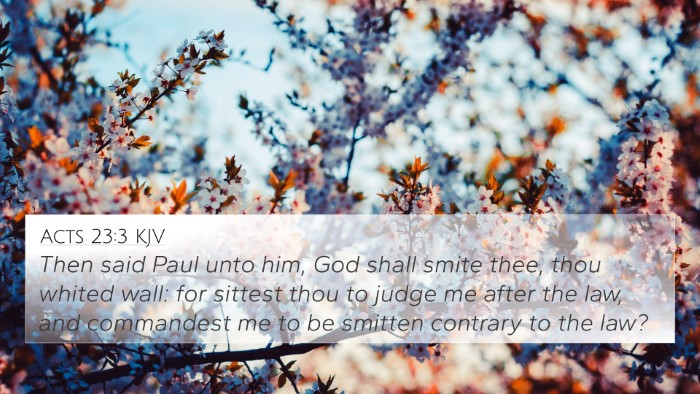Understanding Job 34:18
Job 34:18 (ESV): "Is it fitting to say to a king, ‘You are worthless,’ and to nobles, ‘You are wicked’?"
This verse explores the themes of authority, justice, and the appropriate respect owed to those in power. Elihu, the speaker in this section, emphasizes that it is inappropriate to accuse rulers of worthlessness or wickedness without just cause. In the context of Job's suffering and the debates with his friends about justice and divine retribution, Elihu argues for a more measured approach to understanding God's governance of the world.
Key Insights from Public Domain Commentaries
Matthew Henry: Henry explains that the reverence for rulers is rooted in the acknowledgment that they are appointed by God. He emphasizes that the respect shown to kings and nobles is important for maintaining order in society. To unjustly accuse them undermines not just their authority but the structure of divine order.
Albert Barnes: Barnes analyzes the rhetorical question posed in the verse, noting that it's meant to provoke thought about divine justice. He posits that rulers must be held to a high standard given their roles and the responsibilities they bear. Evil actions should be critically examined in leaders, as their conduct sets a precedent for others.
Adam Clarke: Clarke offers a historical perspective, suggesting that Elihu is cautioning against thoughts of rebellion and disrespect towards leadership. He remarks that this verse illustrates the tension between human perceptions of justice versus the divine plan, asserting that God's ways are ultimately beyond human understanding.
Interpreting the Context
Job 34:18 occurs within a discourse where Elihu defends God's justice against Job's claims of unfair suffering. It serves as a reminder that while human judgments may seem valid, they must always align with God's sovereignty and plan. This verse is a vital part of understanding the moral framework assumed in the dialogue about suffering and righteousness in the book of Job.
Cross-References and Thematic Connections
This verse has several connections to other biblical texts, helping to deepen its meaning and application:
- Proverbs 24:21: "My son, fear the LORD and the king, and do not join with those who do otherwise." – Emphasizes respect for authority.
- Romans 13:1-2: "Let every person be subject to the governing authorities..." – Affirms the divine order of governance.
- 1 Peter 2:17: "Honor everyone. Love the brotherhood. Fear God. Honor the emperor." – Advocating for a respectful attitude towards leaders.
- Ecclesiastes 8:2: "I say: Keep the king’s command, because of God’s oath to him." – Warning about the seriousness of rebelling against those in authority.
- 1 Timothy 2:1-2: "I urge that supplications, prayers, intercessions, and thanksgivings be made for all people, for kings and all who are in high positions..." – The importance of praying for those in authority.
- Luke 20:25: "He said to them, 'Then render to Caesar the things that are Caesar's, and to God the things that are God's.' – Balancing earthly authority with divine obligation.
- Titus 3:1: "Remind them to be submissive to rulers and authorities, to be obedient, to be ready for every good work." – Advocating for obedience to governing authorities.
Conclusion and Theological Implications
Job 34:18 challenges readers to reflect on the nature of authority and the worthiness of leaders in light of divine standards. It underscores the importance of discernment and caution in making judgments about those in positions of power. The theological implications stretch across themes of justice, governance, and morality, urging a balance between righteous indignation and respectful submission.
Practical Applications
Understanding this verse helps believers engage thoughtfully in discussions about authority, justice, and governance within society. It encourages humility in judgment and an acknowledgment of God's sovereignty over all human affairs.










